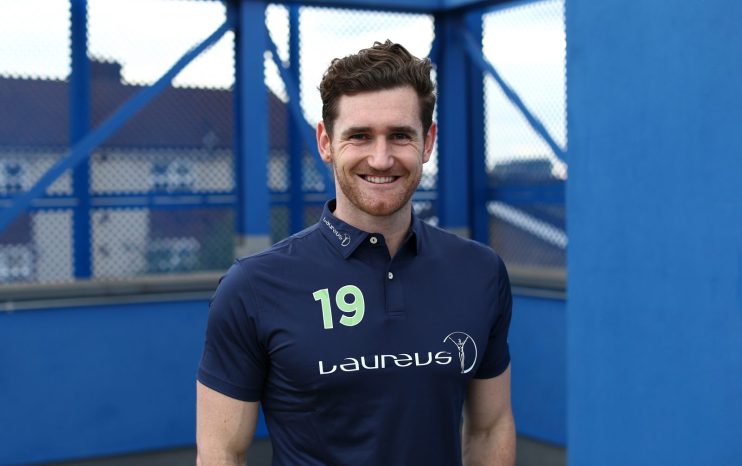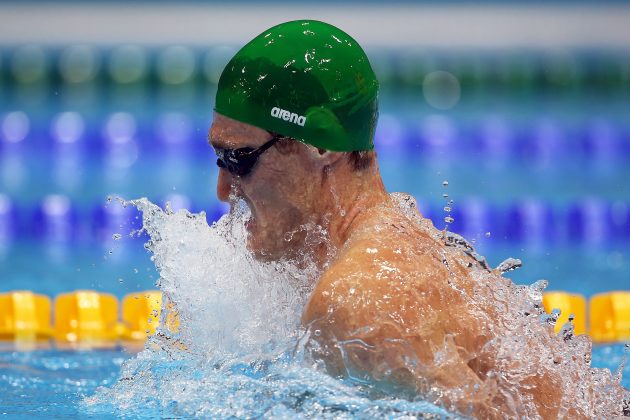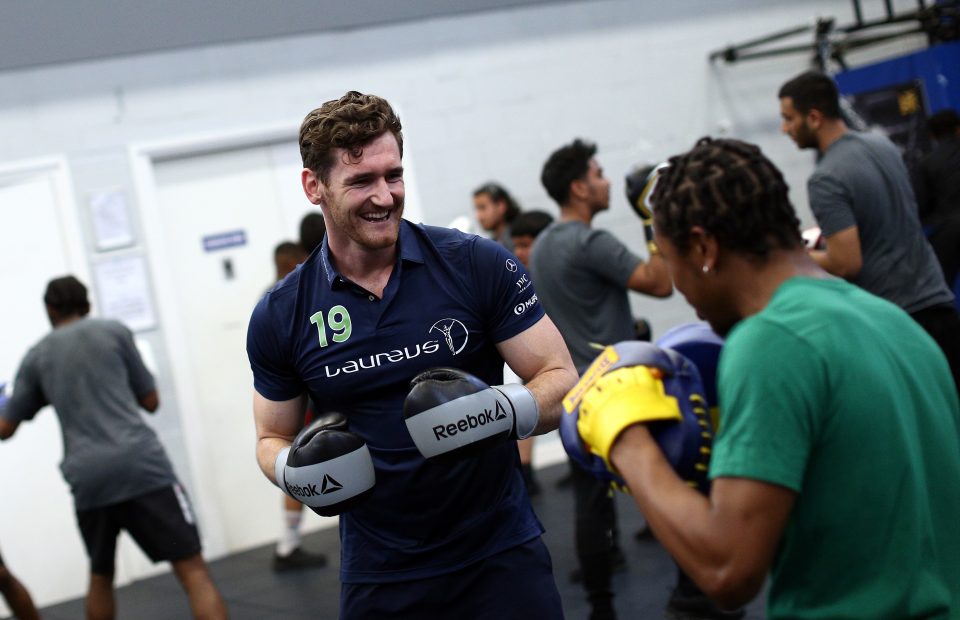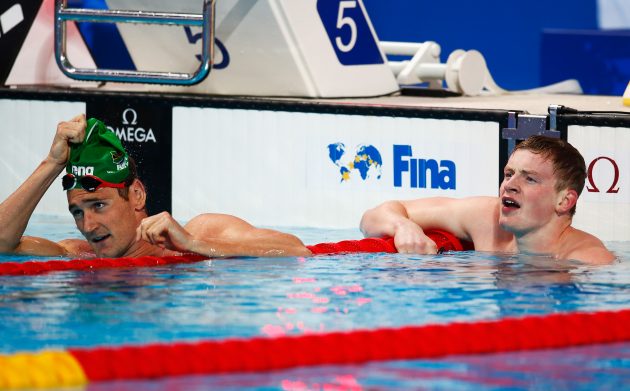Cameron van der Burgh on ‘winning the swimming game’, his new life at a London hedge fund and his mental health struggles

It was at the afterparty for the Rio 2016 Olympics that the seeds of Cameron van der Burgh’s move to a London hedge fund were sown.
Days earlier, the South African had been beaten into second place in the men’s 100m breaststroke final by his great rival, Britain’s Adam Peaty.
Van der Burgh was not finished with swimming yet, but he already had one eye on a second career away from the pool, in finance.
By coincidence, also attending the Rio afterparty was celebrated hedge fund manager Pierre Andurand, once a promising swimmer himself.
Van der Burgh recalls: “We were introduced by mutual friends, through the understanding that I enjoyed financial markets and I’d heard of Pierre Andurand, because he’s a king of oil.
“We got chatting at the party, and instead of me spending the night partying Rio style, I was talking markets and finance with one of the legends of the game.”
How Van der Burgh ended up at a hedge fund
Van der Burgh had first taken an interest in business as a schoolboy, when he and three friends won a nationwide virtual trading competition.
“When I look back, we knew nothing. But we won and that competitive edge in me from swimming just really enjoyed the trading,” he says.
When his swimming career took off, he reserved 10 per cent of his earnings to make “educated guesses” on the real-life markets.
He studied a business degree while rising to the top of his sport, winning Olympic gold in London in 2012.
And when he decided to hang up the Speedos six years later, his thoughts turned back to the same city.
Van der Burgh made contact with Andurand, who invited him to his hedge fund’s Knightsbridge offices.
“I didn’t know I was being interviewed but I was,” he laughs. “Then when I got back to South Africa there was an offer on the door.”
‘London has been the city of my life’
Van der Burgh’s focus as an analyst at Andurand Capital is on climate and energy, “the kind of stuff that gets me up in the morning and gets me super-excited”.
The commodity-focused hedge fund has had a bumper 2020, after betting against the price of oil early in the pandemic.
“I sort of had my Olympics this year because our hedge fund is the best performing in Europe at the moment,” he says.
Away from work, Van der Burgh and wife Nefeli Valakelis welcomed a baby boy, Harry, into the family in September.
They live in Fulham, 5,000 miles north of his native Pretoria but just a short journey from the scene of his Olympic success.
“At that time [2012] the thought never crossed my mind to come to London but it’s definitely been the city of my life,” he says.
Rivalry and friendship with Peaty
As a swimmer, Van der Burgh did it all: Olympic champion, six world titles, four-time Commonwealth champion, multiple world records.
He won the 50m and 100m breaststroke double at every African Games from 2007 to 2015. He won the shorter distance at three consecutive Commonwealth Games. And he once went 24 races unbeaten.
The emergence of Peaty, who grew up idolising Van der Burgh, ended his dominance.
Peaty took his 100m breaststroke title at the 2014 Commonwealth Games and did the same at the next two major championships, culminating in Rio 2016.

He replaced Van der Burgh as the man to beat over 50m too, until the tables were turned at the 2018 Commonwealth Games. It was Peaty’s first defeat over that distance for four years.
“The years that I was winning all the time were a lot of fun, of course. But you don’t have as strong experiences,” he says.
“When Adam and I were really going at each other at a top level of performance, competitively it was amazing.
“You elevate yourself when you have somebody to push against. Sporting rivalries are what stories and memories are built on.”
Van de Burgh’s rivalry with Peaty was fiercely contested but always good natured, and the pair remain firm friends.
“He and I had baby boys a week apart, so we’ve been chatting and sharing photos every now and then of how cute they look and how they’re keeping us up at night,” he says.
How swimming helped Van der Burgh manage ADHD
A swimming champion turned financial hot-shot sounds like an alpha male caricature, but Van der Burgh is far from it.
With disarming honesty and sincerity he details his own mental health challenges and how they have informed his work with sport foundation Laureus.
As a child he was diagnosed with ADHD, was introverted and lacked confidence. Swimming proved not only an outlet but a remedy and proved personally transformative.
Those unwelcome feelings linger, however, exacerbated by lockdown conditions which have placed extra strain on home lives and shut off his usual outlet, the pool.
“The hard part is mentally. It’s difficult to delineate the difference between when I finish working and when my personal life starts,” he says.

“Sometimes you’ll be having a bad day. I’ll step off my desk and five seconds later I’m in the living room with my wife. You’re not physically there because you’re thinking about something else.
“I’ve now decided that when I switch off, I switch off. I put the computer away. And then my wife and I go for 30-minute walk.
“That period allows me to have a break and distinguish what’s work and what’s play, and that’s helped. A lot of people suffer with that and I suffer with that a lot. It’s very difficult.”
‘Sometimes maybe I’m not a nice guy to be around’
Van der Burgh loves walking by the river – “water is part of life for me” – and, in the absence of swimming pools, took up running.
He runs for around 40 minutes each morning, longer at weekends, but is no elite athlete on land, he admits.
“I look like a proper fish out of water running down by the Thames. Often I’ll see young girls or old men flying past me and I feel a little bit silly. But it’s something that I need to do.”

The exercise makes Van der Burgh “calm and relaxed. I don’t get aggressive, I don’t get as irritated and I can be a kind human being.
“Sometimes I get irritated quickly and maybe I’m not a nice guy to be around for my wife or co-workers. So it’s something that it’s really important for me to focus on every day.”
This week he shared his first-hand experience by speaking at a Laureus event focused on mental health and wellbeing.
“It’s all about trying to convey that you can change and give yourself a better life,” he says.
‘I played and won the swimming game’
Van der Burgh concedes that he misses the competitive thrill of swimming and is considering taking part in veterans’ competitions.
“Not that I’m coming for Adam Peaty or anything,” he laughs. “But maybe I’ll come break some masters world records in the process. That would be a lot of fun.”
He has watched with interest as Peaty and many of the world’s other leading professionals have competed in the glitzy, Gen-Z orientated International Swimming League.
The ISL consulted Van der Burgh on the show format before its launch. But his new career precluded any further collaboration – in or out of the pool.
“They did mention coming out [of retirement] for a sneaky 50m but after this year, the guys are swimming incredibly well, so I think maybe I timed my departure very well.
“I got all the golds and world records I could, so I’m very happy with the way I left off. I think it was the right time for me.
“While I do miss the competitive spirit of it, I’m extremely happy in my new career and what I’m doing. I feel like I’m growing.
“You play different games in life. I’ve played and won the swimming game, I’m happy and it was time to step off. I’m playing the family game now and hopefully trying to win at that.”
Cameron van der Burgh spoke at the Laureus Sport for Good Mental Health and Wellbeing through Sport Forum, presented by EACT Jockey Club Active Community Programme, on Thursday. The online event focused on the mental and emotional problems young people face, and explored how to help them cope with various challenges through physical development and exercise.
